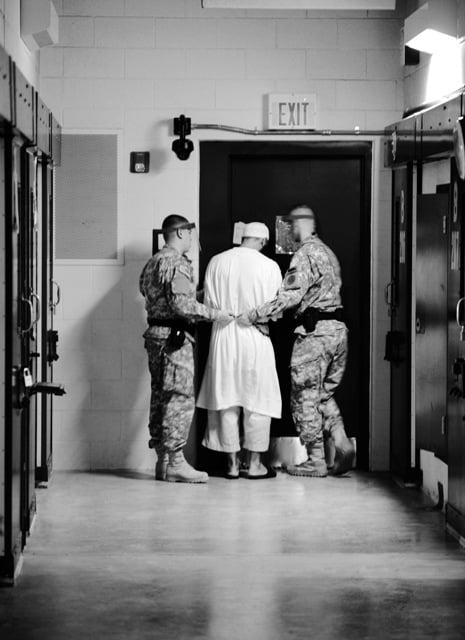
The Peshawar High Court (PHC) told relevant officials on Wednesday to follow the law when it comes to visitation rights for the families of people held in internment centres, warning that failure to do so would result in strict action.
Meanwhile, the government and the court had a difference of opinion when it came to the disposal of missing persons’ cases.
The division bench of Chief Justice Mazhar Alam Miankhel and Justice Malik Manzoor Hussain again pressed officials related to missing persons’ cases to provide reports of oversight boards of all internment centres and ascertain the reasons behind the prolonged detention of certain people.
The court was told by Additional Advocate General Waqar Ahmad Khan and Khyber-Pakhtunkhwa (K-P) Home and Tribal Affairs department Deputy Secretary Usman Zaman that once a case was heard by the Commission of Inquiry on Enforced Disappearance, it was referred to a joint investigation team (JIT) and an FIR was registered after the latter’s report.
It was also said during the hearing that after the whereabouts of a missing person have been traced, the case could be disposed of. The division bench was told that the K-P government would ensure that the reports of oversight boards containing details of each detainee at internment centres would be produced soon.
According to Section 14 of the Action (in aid of civil power) Regulations 2011, “the governor shall notify an oversight board for each internment centre comprising two civilians and two military officers to review the case of each person interned within a period of time, not exceeding 120 days from the issuance of the order of internment.” The oversight board is also supposed to prepare a report for consideration of the governor.
The chief justice remarked that the only sign of improvement in missing persons’ cases was that their bodies were now being handed over to the families instead of being dumped in ravines or by the roadside.
“Tracing a missing person is not enough to dispose of a case as the court wants details and the reasons for detention,” said Justice Miankhel.
The court observed there were clear provisions in the law allowing families of detained suspects to visit, yet they were not being allowed to do so. It added strict action would be taken against any official violating the law in this regard.
The PHC ordered that a copy of this order be sent to the offices of the K-P advocate general and chief secretary.
When the bench took up 20 petitions related to enforced disappearances, AAG Waqar Ahmad produced a fresh list of detainees, saying the whereabouts of 96 had been traced at various internment centres of the province.
The list produced by the government’s counsel was different from the ones produced in the last two hearings of these cases. The first list, produced on May 29, stated 708 people were detained in centres of K-P and Fata, while a second on June 26 said 130 suspects were being held, adding 10 others had been handed to political administrations and police, who released them.
The bench was told by Muhammad Salim that he was picked by police some 16 months ago in Mattani and handed over to the political administration of Khyber Agency. The assistant political agent of Bara released him and now he wanted to withdraw his case without charging anyone for his disappearance.
Meanwhile, Gulfam Bibi told the court her husband had been picked from a mosque in Dil Jan Plaza near the headquarters of the Frontier Constabulary. The court ordered the commandant of the FC to submit a report in this case.
Published in The Express Tribune, September 4th, 2014.



1732105641-0/BeFunky-collage-(78)1732105641-0-165x106.webp)







COMMENTS
Comments are moderated and generally will be posted if they are on-topic and not abusive.
For more information, please see our Comments FAQ